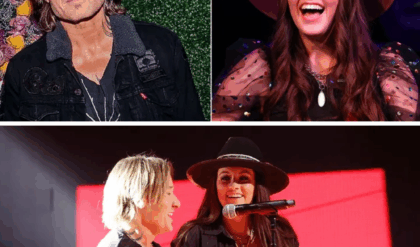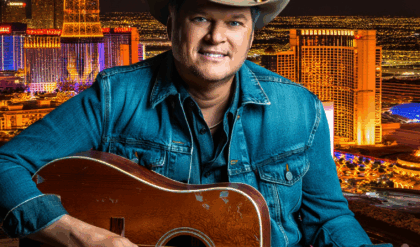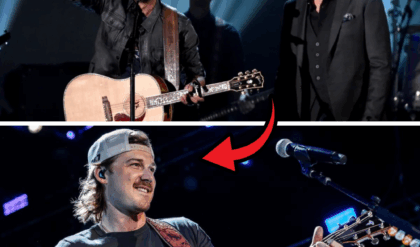In the smoke-choked back alleys of Birmingham’s industrial underbelly, where the ghosts of gangland glory still whisper through the rain-slicked cobbles, one family has reigned supreme for over a decade on screens worldwide: the Shelbys. From the razor-capped terror of the Peaky Blinders gang in the roaring 1920s to the fascist shadows of the 1930s, Steven Knight’s masterstroke of a series—Peaky Blinders—has gripped audiences with its intoxicating brew of family loyalty, brutal ambition, and unyielding grit. The original six-season run, which bowed out in 2022 with Tommy Shelby’s haunted gaze fixed on a horizon of uneasy peace, left fans howling for more. Enter the cinematic bridge: The Immortal Man, a feature-length scorcher set amid the Blitz’s fury, where Cillian Murphy’s Tommy reprises his devil-may-care strut through wartime espionage and betrayal. But just as whispers of that film’s 2026 release date began to swirl, Netflix and the BBC have detonated a bombshell that cements the Shelby saga as a sprawling epic for the ages. On October 2, 2025, the powerhouses announced a two-season renewal—a full-blown sequel series, not mere continuations—plunging a fresh generation of Shelbys into the treacherous rebuild of 1950s Britain. This isn’t a nostalgic epilogue; it’s a blood-soaked baton pass, ensuring the Peaky legacy endures like the indelible scars of its patriarchs.
The announcement, dropped like a live grenade during Netflix’s Tudum global fan event, sent shockwaves through the entertainment world. “I’m thrilled to be announcing this new chapter in the Peaky Blinders story,” Knight proclaimed in a statement that crackled with his signature Birmingham fire. “Once again it will be rooted in Birmingham and will tell the story of a city rising from the ashes of the Birmingham Blitz. In a new era of Steven Knight’s Peaky Blinders, the race to own Birmingham’s massive reconstruction project becomes a brutal contest of mythical dimensions. This is a city of unprecedented opportunity and danger: with the Shelby family right at its blood-soaked heart.” Each season clocks in at six taut, 60-minute episodes, produced by the powerhouse duo of Kudos (SAS: Rogue Heroes, House of the Guinness) and Garrison Drama (the original series’ steadfast stewards). Filming kicks off in early 2026 at Digbeth Loc, the sprawling Manchester backlot that’s become a second home to the franchise, recreating Brum’s postwar boom with meticulous period flair—think towering cranes piercing smoggy skies, prefab housing sprouting like weeds, and the hum of machinery masking the undercurrent of mob muscle.
At the saga’s throbbing core? A new breed of Shelbys, heirs to Tommy’s empire, navigating a Britain scarred by victory’s hollow cost. Set in 1953, the sequel unfurls in a Birmingham reborn from WWII’s rubble: the Luftwaffe’s 1940-1943 onslaught left 2,345 dead and the city center in flames, but now it’s a frenzy of concrete and steel, with government contracts for housing estates and factories dangling like forbidden fruit. The young Shelbys—descendants whose exact lineage teases delicious ambiguity—eye this gold rush not as builders, but as kingmakers. Imagine Charlie Shelby’s boy, now a sharp-suited operator in his late 20s, clashing with Ruby Shelby’s fiery daughter, a codebreaker turned black-market maven, over who claims the lucrative demolition deals. Their ambitions collide with rival syndicates: shadowy ex-IRA operatives smuggling arms from Ireland, corrupt councilors peddling kickbacks, and a cabal of American investors hungry for transatlantic footholds. Betrayals brew in boardrooms disguised as pubs, razor blades glint under fluorescent factory lights, and the ghosts of the old guard—Tommy’s opium-fueled visions, Arthur’s bar-fight bravado—haunt via flashbacks and heirlooms like that cursed family crest lapel pin. It’s Peaky Blinders reimagined for the Festival of Britain era: ration books give way to rock ‘n’ roll bootlegs, but the family creed remains etched in blood—”By order of the Peaky Blinders.”
Cillian Murphy’s shadow looms large over this resurrection, not as a caped crusader on screen (yet), but as an executive producer wielding narrative clout. Fresh off his Oscar sweep for Oppenheimer and a string of indie triumphs, Murphy’s fingerprints will ensure the sequel honors the original’s soul while forging ahead. “The Shelbys don’t fade; they evolve,” he teased in a rare post-announcement dispatch from the The Immortal Man set. “Tommy’s wars shaped us all—now it’s time for the next wave to pick up the guns and the grudges.” The film itself, helmed by director Tom Harper and scripted by Knight, bridges the eras with WWII ferocity: Tommy, gaunt and greyer, orchestrates sabotage against Nazi sympathizers while grappling with Ruby’s lingering fever dream and Grace’s spectral pull. Co-starring Rebecca Ferguson as a enigmatic SOE agent, Tim Roth as a vengeful fascist financier, Stephen Graham’s indelible Uncle Jack, Sophie Rundle’s Ada in a power-suit pivot, and Barry Keoghan as a wild-card Irish recruit, The Immortal Man—delayed from 2025 amid post-production polish—drops mid-2026, priming pumps for the series’ late-2027 debut. Expect Murphy to cameo in the opener, a spectral advisor in a rain-lashed cemetery, passing the torch with a parting shot: “Luck’s for the living, lad. Make your own.”
Knight’s vision pulses with the sequel’s thematic bite, transforming postwar optimism into a cauldron of class warfare and cultural upheaval. Birmingham’s reconstruction isn’t just backdrop; it’s battleground. The 1947 Town and Country Planning Act funnels billions into urban renewal, but for the Shelbys, it’s a chessboard where pawns are bent coppers and knights are union brawlers. Episodes tease arcs of immigrant influx—Jamaican steelworkers clashing with Brummie hardmen over job quotas, sparking riots that echo the 1958 Notting Hill clashes a tad early—or the allure of television as a new propaganda tool, with a Shelby scion laundering cash through BBC pilots. Female ferocity amps up: expect a matriarchal enforcer channeling Polly Gray’s ghost, wielding lipstick as lethal as a switchblade, in a nod to the era’s rising suffragette echoes amid rationed nylons. And the danger? Dialed to eleven. Where the original’s horse races hid heroin heists, here it’s motorway blueprints concealing arms caches, with MI5 shadows and Teddy-boy gangs adding layers of menace. Knight, ever the alchemist, blends historical heft—drawing from declassified Blitz dossiers and Attlee-era manifestos—with operatic flair: symphonic scores by Anna Pinskaya swelling over crane demolitions, cigarette smoke curling like omens in council chambers.
Production buzz is electric, with the creative brain trust assembled like a war cabinet. Executive producers Karen Wilson and Martin Haines (Kudos) bring procedural polish, while Jamie Glazebrook (Garrison) safeguards Shelby authenticity—right down to the bespoke flat caps, now edged with postwar zoot-suit swagger. BBC’s Jo McClellan and Netflix’s Mona Qureshi and Toby Bentley oversee the transatlantic rollout: UK premiere on BBC One and iPlayer, global binge on Netflix, with international licensing mirroring the original’s smash trajectory. Casting calls, shrouded in secrecy, hint at a youth quake: rising Brummie talents like a Derry Girls alum for the hot-headed heir, a Sex Education breakout for the scheming sister, and whispers of a Top Boy vet as the rival don. Veterans may pepper the fray—Paul Anderson’s Arthur as a boozy uncle, or Finn Cole’s Michael as a Stateside absentee—but the focus is forward, unburdened by cameos that could eclipse the new blood. Budgets balloon to £15 million per season, funding visceral stunts: car chases down the nascent M1 precursor, bare-knuckle bouts in half-built high-rises, and a climactic arson atop a skeletal tower block, flames licking the night like Tommy’s unquenchable vendettas.
Since the drop, the internet’s ablaze—#PeakyBlindersSequel racks up 2.5 million impressions in 48 hours, fan theories flooding Reddit’s r/PeakyBlinders like opium dens. “New gen? As long as they keep the razors and the rage,” one top thread roars, while TikTok edits splice Oppenheimer clips with Shelby struts, captioning “Tommy’s grandkids about to drop the bomb on Brum.” Critics, sensing a franchise phoenix, laud the pivot: The Guardian dubs it “Knight’s boldest gambit, trading interwar intrigue for Cold War undercurrents,” while Variety hails the “seamless handoff from Murphy’s mythos to tomorrow’s terrors.” Social ripples hit hard—Birmingham’s tourism board reports a 30% spike in “Peaky tours,” with visitors queuing for Small Heath selfies amid the canals. Yet skeptics murmur: Can the sequel eclipse the original’s alchemy, where Murphy’s coiled intensity and McCrory’s venomous poise set an impossible bar? Knight’s retort? “The Shelbys aren’t done bleeding. Neither are we.”
This renewal isn’t mere extension; it’s evolution, a testament to Peaky Blinders‘ grip on the zeitgeist. From its 2013 BBC Two debut—humble origins in smoky pubs—to Netflix-fueled global domination (over 20 million households tuned into Season 6’s finale), the series has spawned razor-blade merch empires, a Cillian-endorsed whiskey line, and even a Small Heath heritage trail. Awards? A BAFTA haul, Emmys nods, and cultural osmosis into memes (“By order of the Peaky Blinders” as protest chant). Now, in an era of austerity echoes and urban revamps—from London’s Crossrail to Manchester’s Northern Powerhouse—the sequel resonates like a gut punch. It probes legacy’s double edge: inheritance as crown or curse, progress as profit or poison. For the new Shelbys, Birmingham’s “better future” is a facade—beneath the Brutalist facades lurk the same sins, amplified by atomic-age anxieties and empire’s unraveling.
As The Immortal Man hurtles toward screens—trailers teasing Tommy’s rain-drenched rally cries and Ferguson’s femme fatale foil—the stage is set for a dynasty’s dawn. Filming teases from Digbeth already leak: period lorries rumbling past chain-link fences, extras in donkey jackets muttering Brummie oaths. Knight, holed up in his Warwickshire redoubt, pens scripts that bleed authenticity, consulting Blitz survivors’ oral histories for that raw edge. Murphy, balancing EP duties with a rumored 28 Years Later gig, vows oversight: “We’ll honor the fire without burning out.” Netflix, eyeing franchise fatigue in a post-Stranger Things world, bets big on this British behemoth—co-financing with BBC ensures cross-cultural cachet, from Kansas City bar brawls to Kolkata street theater.
For devotees, it’s vindication: the Peaky pulse beats eternal. Binge the originals anew, savor Tommy’s “I don’t pay for suits” swagger, Polly’s “Men don’t have the edge” wisdom, and that ever-present dread of the drop. The sequel promises escalation—faster fixes, fiercer feuds, families fractured and forged in the crucible of concrete dreams. In a landscape littered with rebooted relics, Peaky Blinders doesn’t recycle; it reloads. The Shelbys ride again, razors honed for a new war. Birmingham’s rising, alright—but so are the stakes. Pour a Gilbey’s, light a Woodbine, and brace: the danger’s just getting dangerous.





